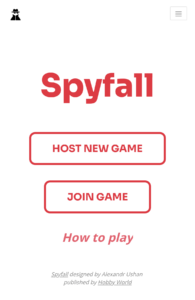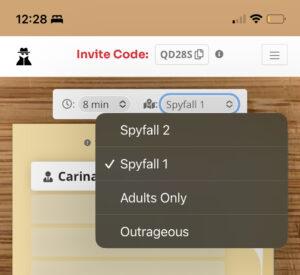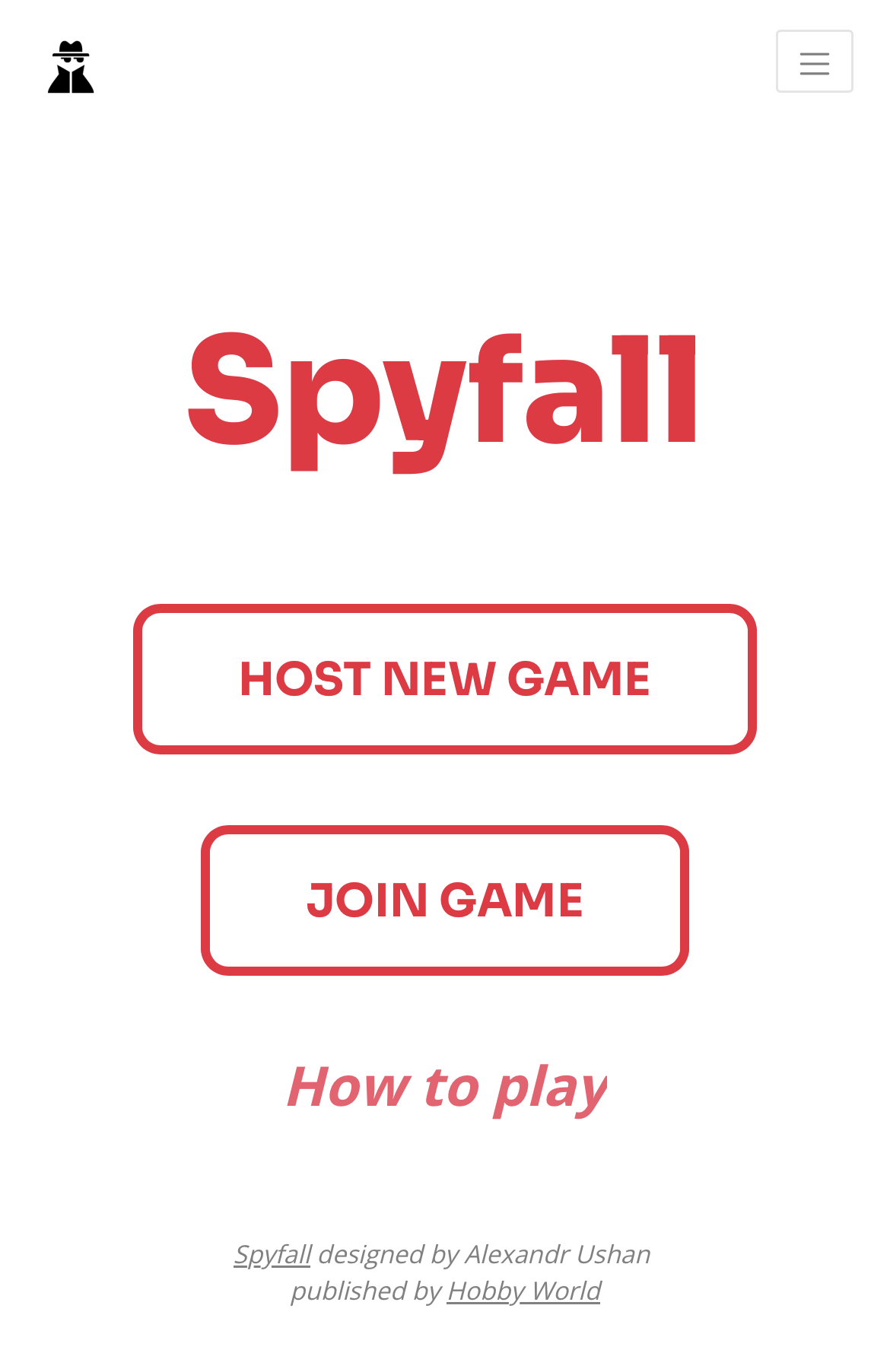
For the first critical play, I played Spyfall with some other 247G students. The game is available on any web browser, and was designed by Alexander Ushan and published by Hobby World, a board game publishing house in Russia and Eastern Europe. There is no listed recommended age, but presumably older than 6 or 7 because there is quite a bit of strategic thinking involved. Otherwise, there is a range of target audiences/demographics, evidenced by the fact that you can change the game version to be Spyfall 1, Spyfall 2, Adults Only, or Outrageous.

The game is designed for 4-12 people who are all capable of hearing one another. Since the objective of the game is to guess who the imposter is (imposter-type game) based on asking and answering questions, all players need is an individual device with access to the web and to be able to hear all the other players. After the game starts, all players except one are assigned the same location with different roles (i.e. pirate ship and captain) and their objective is to guess who the “spy” is. The randomly chosen “spy” (by some black-box algorithm) is not given any location or role, and their objective is to guess the location that everyone else is at without giving away the fact that they don’t know anything. This is possible because there is a list of potential locations at the bottom of the page and the spy (or anyone, actually), can check off locations based on the conversations they hear.

Each round lasts for a set amount of time, with the default being 8 minutes, and within that time limit, procedure calls for players to take turns asking each other questions about the given location in order to try and determine who the spy is. The game also provides players with example questions every minute at the bottom of the page, which is a great resource for players who are not as good at coming up with questions at the fly. Obviously, since each player is trying to keep their identity a secret, it is critical to maintain some sort of physical boundary between players to ensure no one can see another person’s screen.
When comparing Spyfall to other imposter games such as Among Us, Werewolf or Mafia, I personally think that Spyfall is better, mainly because of how easy it is to play. It requires very little of the players, since they only need themselves and access to a browser, as opposed to Among Us, which requires downloading an application that is quite glitchy. The speed of each round is also a selling point in comparison to Werewolf and Mafia, which are games that can go on for an extremely long time. And since the computer is the moderator, there is no room for bias or dirty play by a third-party.
I thought the game was super fun and efficient, because we were all able to have some really good laughs despite the game only lasting 8 minutes and despite the fact that we were playing on Zoom, something that I think is hard to achieve for a lot of games. However, I think though we initially tried answering questions in our roles, we ended up just answering based on our personal lives because it felt easier and more genuine. As such, the only thing I would change to make the game better is the removal of roles. While I understand the reasoning behind why the roles existence, I think it could add a facet of Discovery if players were required to answer questions based on their personal lives, and help Spyfall dip a toe into the pool of getting-to-know-you games that are so often played at parties.



